IntegralMente
Welcoming and scientific evidence for everyone
Developmental Disorders
Support for monolingual and bilingual children and adolescents.
Personalized interventions designed for each individual.
Evidence-based speech-language assessment of oral and written language – Portuguese and English.
Intervention
Speech-Language Assessment
About Us
We are two speech-language pathologists, PhD candidates at the Federal University of São Paulo, with clinical practice and research focused on language and learning disorders in children, adolescents, and adults — bilingual or not. Our work is guided by scientific evidence and by the commitment to transform language, reading, and writing skills into more functional and automatic processes, making each patient’s daily life easier.
The union of our work was born from a shared desire to embrace the challenges involved in learning disorders in a broad and integrative way. We believe that each person is much more than their difficulties: we see our patients in their entirety, valuing not only their challenges but also their strengths and functionality in different life contexts.
Our purpose is to create a space of trust, science, and care, where every individual — child, adolescent, or adult — can develop with autonomy, confidence, and self-esteem.


Who We Are
Bilingual speech-language pathologist (Portuguese/English), graduated from the Federal University of São Paulo (UNIFESP/EPM), with a specialization in Language and Speech and a Master’s degree in Human Communication Disorders. She is currently a PhD candidate at the same institution, investigating cognitive and linguistic processes involved in reading comprehension. Her clinical experience includes speech, child language, learning disorders, and orofacial motricity (Bilingual/Monolingual). By integrating Neurofunctional Rehabilitation into therapy, she offers innovative approaches that stimulate neuroplasticity, promote cortical reorganization, and support the automatization of neurofunctional processes underlying the development of speech, language, reading, and writing. Her practice combines scientific rigor with global stimulation techniques. Her work unites a solid scientific foundation with empathy and individualized care.
CRFa 2-20824
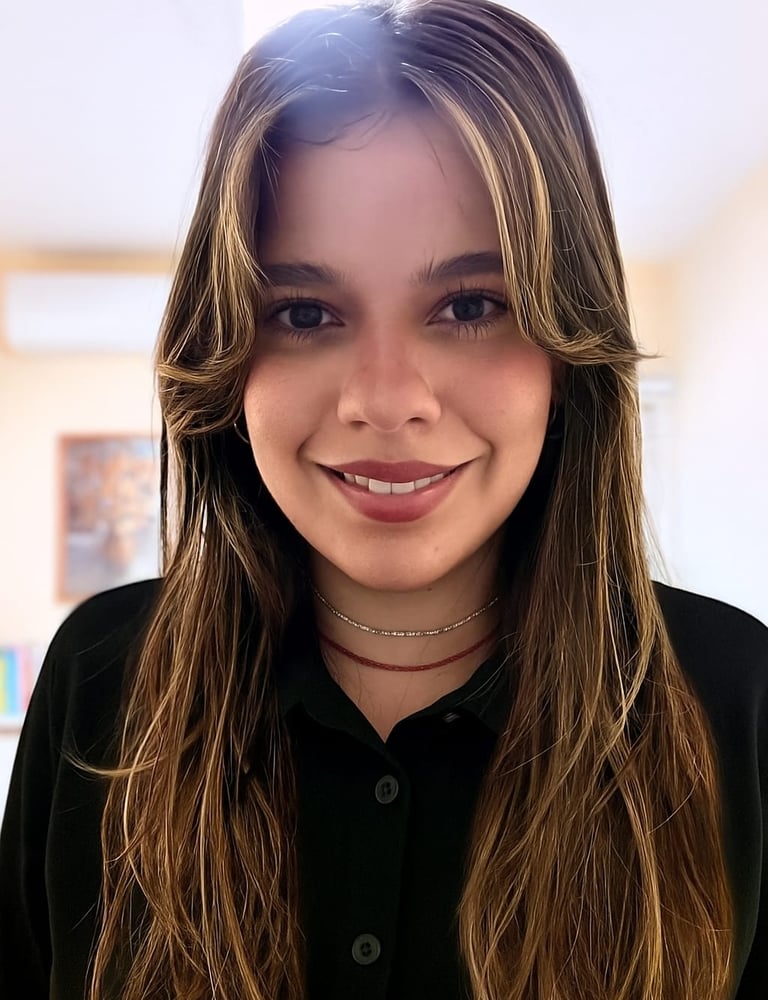

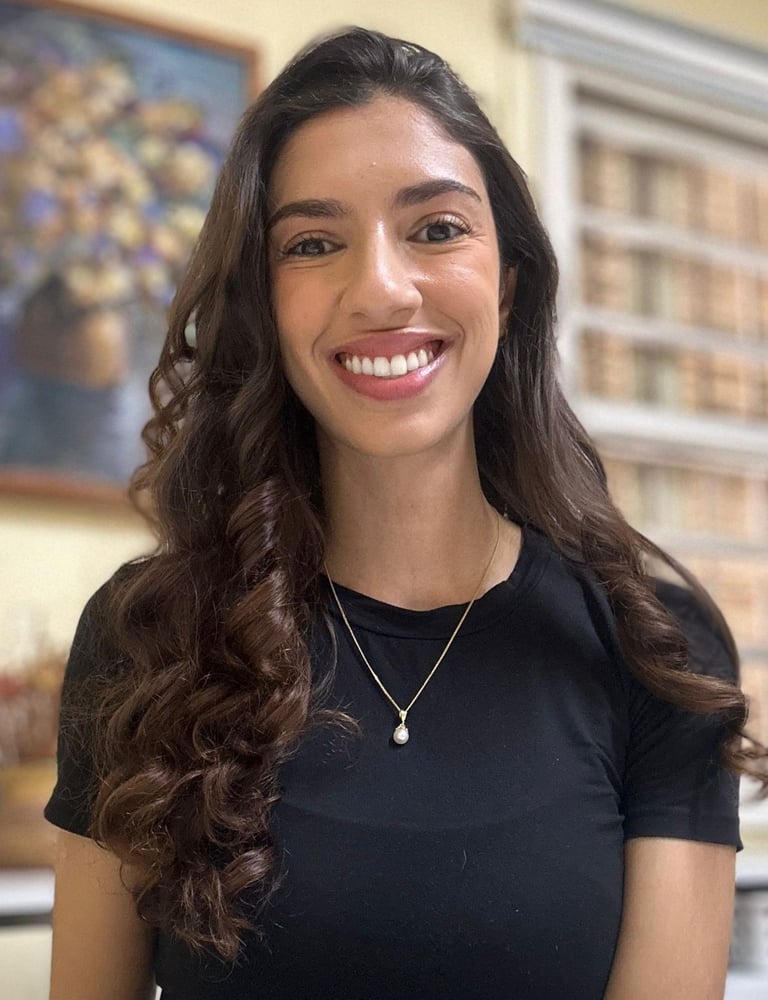

Esther Simonato
Bilingual speech-language pathologist (Portuguese/English), with experience focused on language development in bilingual children and the acquisition of reading and writing. She holds a Master’s degree and is currently a PhD candidate at the Federal University of São Paulo (UNIFESP/EPM), and is a researcher at NEAPEL, where she investigates the impact of bilingualism on vocabulary and reading fluency. She is trained in the Seeing Stars program by Lindamood Bell, aimed at strengthening reading and spelling skills, in addition to other certifications in language and learning. Her practice is especially suited for families seeking specialized support in bilingual education or in language difficulties within the school context, combining science and practice in effective and compassionate interventions.
CRFa 2-20822
Daniela Candal
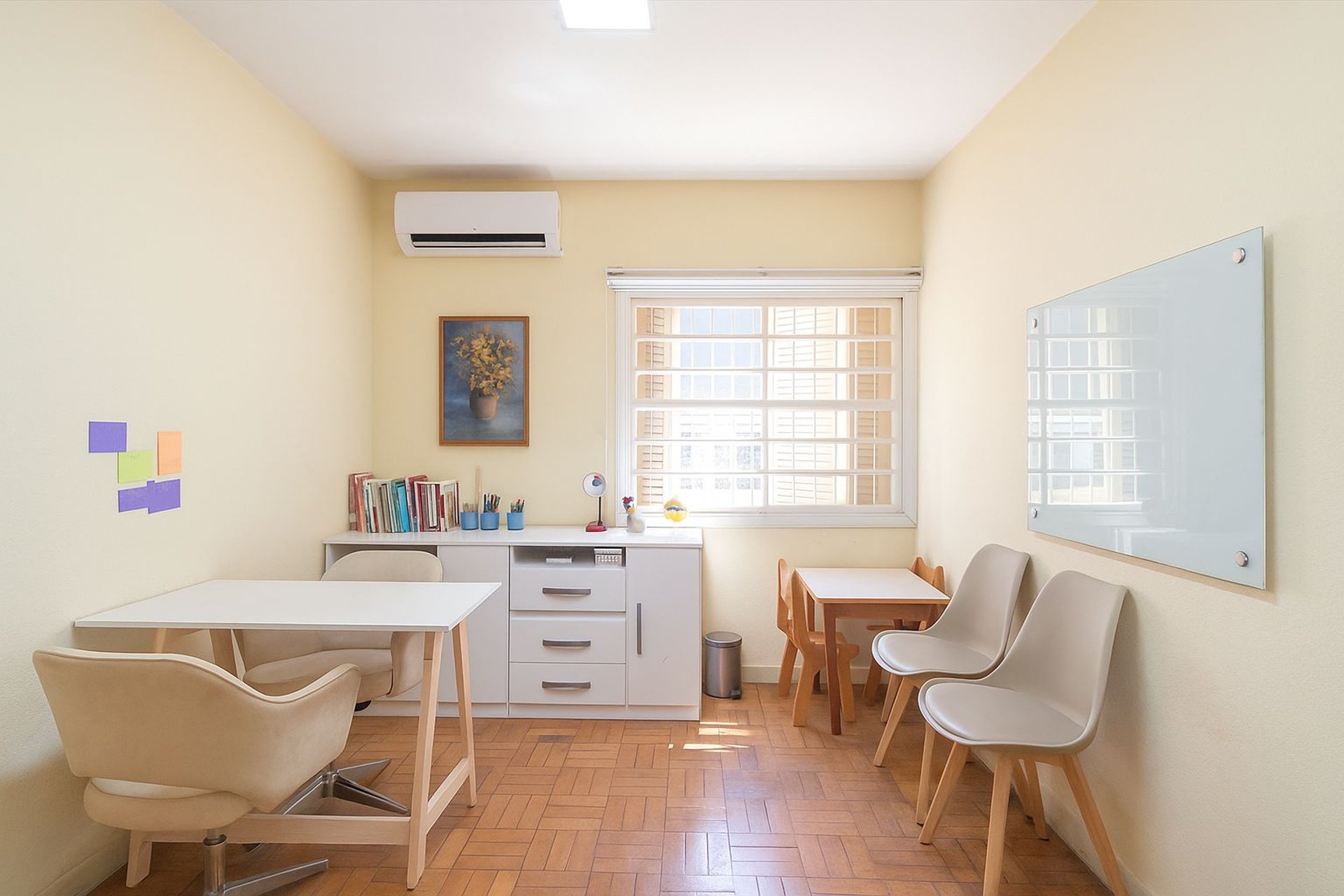
When to seek help?
If you notice delays or difficulties in speech or language
The child can't say expected words for their age
Substitutes, distorts, or omits many sounds, making understanding difficult
Shows frustration when trying to communicate
Does not understand what is said or needs frequent repetitions
Can't express their ideas properly










Or reading and writing difficulties
Difficulty learning to read and write
Slow reading, with effort, many mistakes, or little comprehension
Changes letters when writing
Frequent spelling mistakes, even after corrections
Difficulty copying from the board or organizing ideas in writing










...if you notice the impact of these difficulties on school life
School performance below expectations despite effort.
Difficulty memorizing letters, numbers, or instructions.
Problems keeping up with the pace of the class.
A history of negative experiences or associated comorbidities may also require attention
Low self-esteem related to language or learning.
Avoids situations where they need to speak, read, or write.
Isolation or difficulties interacting with peers.
...or even in social relationships and emotions.
ADHD, APD, or other conditions that interfere with attention and language processing.
Previous attempts at intervention without significant progress, causing frustration and discouragement.
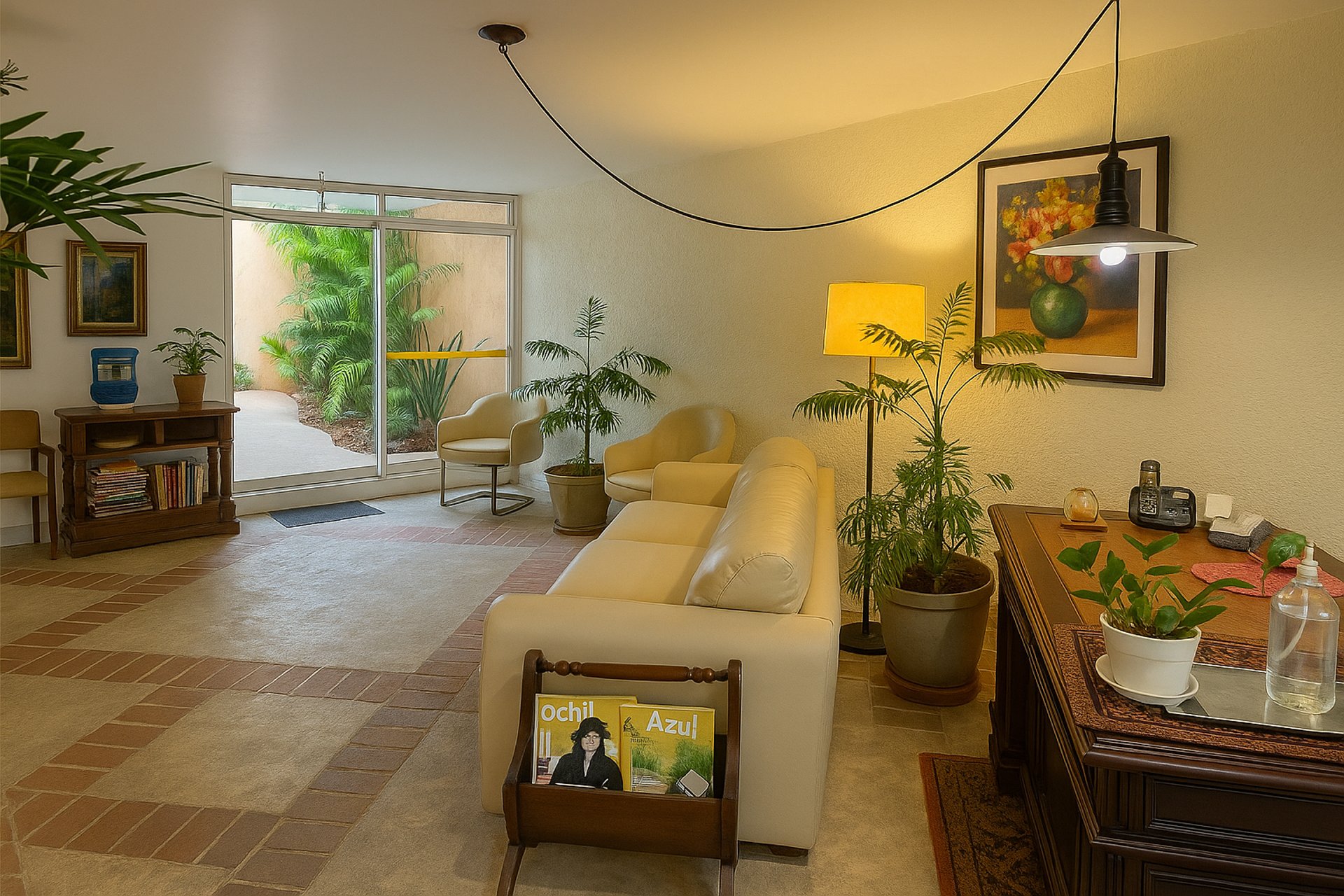
Who comes to us?
In many cases, children, adolescents, adults, and family members who feel lost, exhausted, or emotionally vulnerable due to difficulties with speech, language, or learning seek our services. Sometimes, these difficulties affect social life; in other cases, there are traces of negative experiences from previous interventions, as well as doubt and fear. We also welcome those who live with associated conditions, such as ADHD or Auditory Processing Disorder (APD). Our commitment is to rebuild trust in the therapeutic process by offering a safe, welcoming, and respectful space where each patient is understood in their uniqueness and never reduced to their difficulties.


Services


Speech-Language Assessment
Speech-language assessment of oral and written language – Portuguese and English*
Speech-language diagnoses
Interdisciplinary and interprofessional collaboration, when necessary
Diagnoses
Interdisciplinary Articulation
Parental Orientation
Guidance provided to parents or guardians based on established approaches
Personalized Intervention
Personalized and evidence-based speech-language intervention
Bilingual Care
Specialized Bilingual Care - Portuguese/English
School Alignment
Discussion with the school staff to align expectations and define approaches
*Bibliography - Gough, P. B., & Tunmer, W. E. (1986). Decoding, reading, and reading disability. Remedial and Special Education, 7(1), 6310.
Catts, H. W. (2021). The Simple View of Reading: Advancements and false impressions. Journal of Child Psychology and Psychiatry, 62(5), 6103617












Welcoming
During the first appointment, we have an initial conversation to learn about the patient’s or family’s history, needs, and expectations. This moment is essential for us to understand each case in its entirety.
Structured Speech-language assessment
The patient must also be heard, so that we can understand not only their difficulties but also their expectations, interests, and strengths. The patient’s well-being is one of our priorities. At this stage, we seek to build a positive bond with the child. The patient’s engagement and motivation are essential in both assessment and intervention. In a second stage, the evaluation begins. It is conducted at the child’s own pace, using standardized tests, internationally recognized protocols, and qualified clinical observations, according to the child’s age, language (Portuguese and/or English), and specific needs.
Feedback Session
After the assessment, a detailed speech-language report is prepared. The results are presented clearly and based on scientific evidence. Diagnostic hypotheses are proposed according to the observed results, and approaches are defined. The report serves as a guide for families, schools, and other health professionals, making it easier to understand the patient’s needs and align intervention strategies.
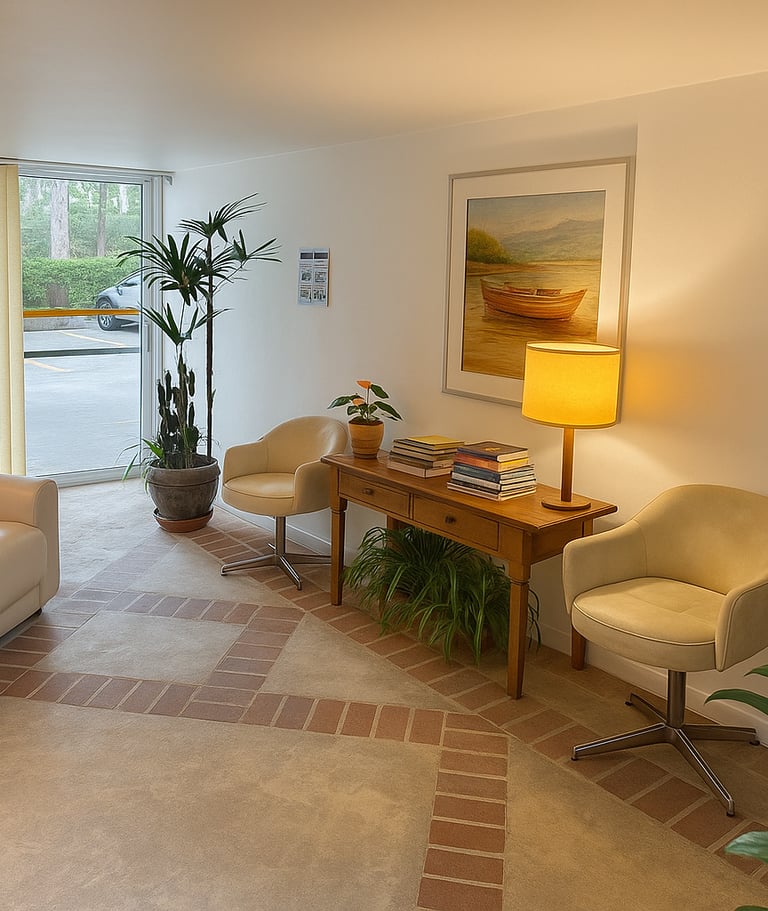

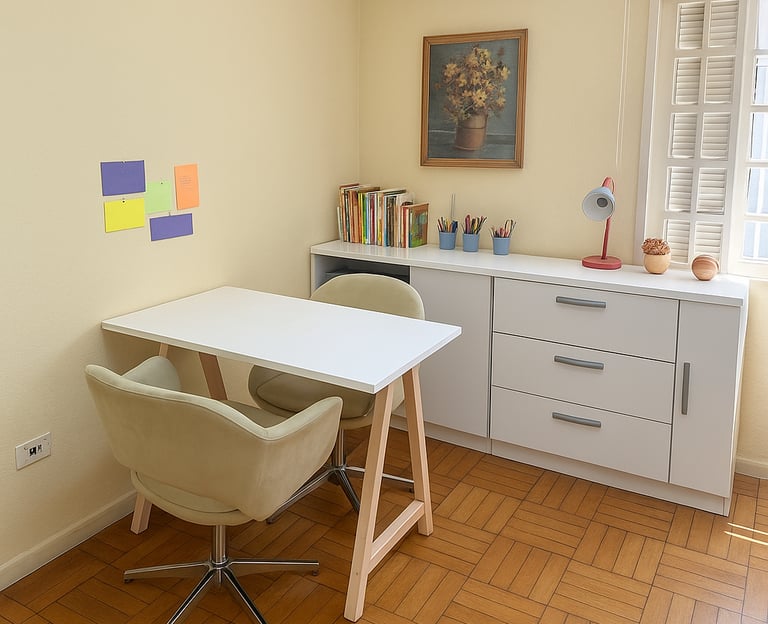

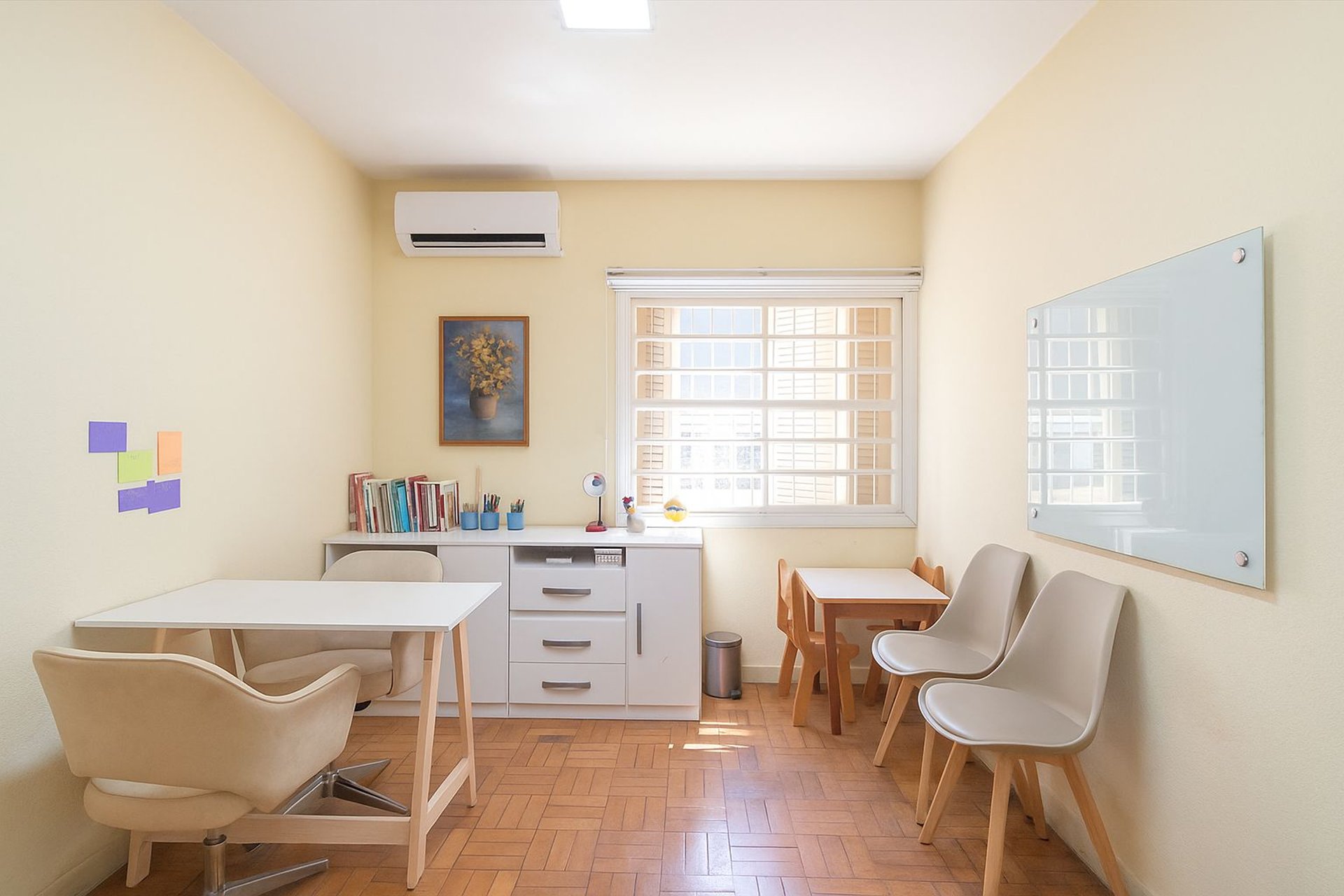
The assessment enables the development of an individualized therapy plan. Our practice is guided by the principle of neurofunctional reorganization, which helps make speech, language, reading, and writing increasingly automatic and fluent. We work through the integration of cognitive and linguistic skills and their functionalities, understanding that full development only occurs when the person is viewed in their entirety. Thus, each intervention is designed to promote not only academic progress but also greater autonomy, confidence, and quality of life.
Intervention
Our Mission


Our purpose is to transform the experience of those with speech, language, or learning disorders by offering pathways that make communication, reading, and writing lighter and more enjoyable. We believe that each person can achieve greater autonomy and confidence in their school, academic, and professional life when they are seen in their entirety — not only through their difficulties.
That is why uniting science and care is our priority, so that our patients and their families feel supported and safe at every step of this new journey.
Contact us and Localization
Address
136 Benedito Lapin Street, Itaim Bibi, São Paulo - SP, Brazil
Contact
+55 11 99469-2275
Everybody is a genius. But if you judge a fish by its ability to climb a tree, it will live its whole life believing that it is stupid.
Albert Einstein


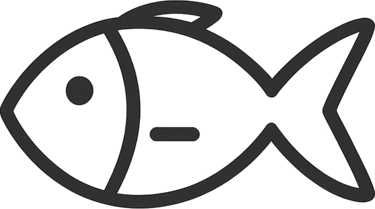

Get in touch!


